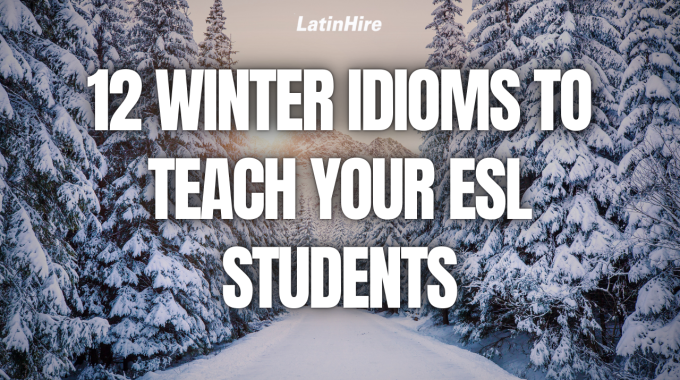As an online ESL teacher, do you ever find teaching verb tenses to be dry…

5 Skills Great Teachers Must Have (Part 2)
The best teachers have a wide range of skills to give students the best learning experience. In Part 1 of “5 Skills Great Teachers Must Have”, we talked about the important skills of listening, patience, organization, communication and creativity. If you haven’t read Part 1 yet, click here to check it out!
This week, we are looking at five more skills great teachers must have. Let us know if you agree or not and which skills you’d like to work on.
Skill #6: Computer Skills

We live in the golden age of technology, and there are so many technological tools you can use to enhance your students’ learning experience and promote their engagement in the classroom. Your students will likely be more tech savvy than you are, so don’t be afraid to ask them to teach you a thing or two!
How to develop this skill: Learn to use basic computer programs like PowerPoint and Excel. Incorporate activities using technology in your classes, such as Kahoot or Mentimeter. There are many free tutorials available on Youtube that you can watch to learn more about how to utilize technology in the classroom.
Skill #7: Time Management Skills

As much as teachers love their jobs, it’s easy to lose track of time and let work seep into their private lives. Teaching comes with a lot of take home responsibilities, such as lesson planning and grading. To maintain a healthy work-life balance, you must have good time management so you have enough time to relax and spend time with friends and family. It is vital to not let your teaching job take over your personal life.
How to develop this skill: Create a schedule and set certain hours for work and other hours for rest. Get started with tasks early, prioritize them and make deadlines to not overwhelm yourself.
Skill #8: Conflict Resolution Skills

In any profession involving working with other people, conflicts may arise. As a teacher, you work with many types of people including students, other teachers, administration and parents. Knowing how to deal with conflicts in a peaceful and respectful manner is a crucial skill in the teaching profession.
How to develop this skill: Listen to all sides with your full attention and try to take your emotions away from the situation. Look for the cause of the issue rather than playing the blame game. Bring all the parties involved together and explain that you’re all working towards the same goal, and that is to solve the problem.
Skill #9: Collaboration Skills

Teachers rarely work in isolation. They usually work closely with a group of other teachers who teach the same or similar subjects. Teachers also have to collaborate with parents, admin and students. When collaboration works well, there is synergy which means that the combined effort of all parties involved produces results that are greater than the sum of the individual parts. Think of it like 1 + 1 = 3.
How to develop this skill: Work on your communication with others, learn to be open-minded to different ideas and contribute your own ideas whenever you can. Effective collaboration means that everyone plays a part, so give others the chance to speak and speak up when you need to. Then work together to come up with the best game plan.
Skill #10: Adaptability

The world is continually changing and in recent years much more rapidly than in the past. The educational world is no exception, so being adaptable is a crucial skill as many things can throw your plans off course. Especially the past two years with the pandemic, teachers had to be extremely flexible to adapt to daily changes in their schedule and class arrangements.
How to develop this skill: Learn to accept and embrace change rather than fight against it. Keep an open mind and leave your ego at the door. When things are happening outside of your control, focus on what you can control and do your best in those areas. Put yourself in situations that push your comfort zone and learn resilience from those experiences.
Are there any other skills you think all great teachers must have that were not mentioned in Part 1 or Part 2 of the article? Let us know what they are in the comments below!



